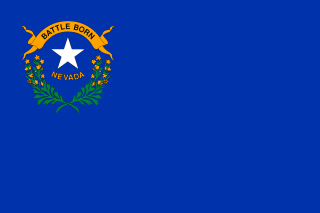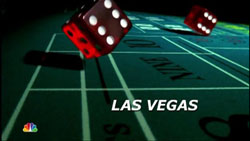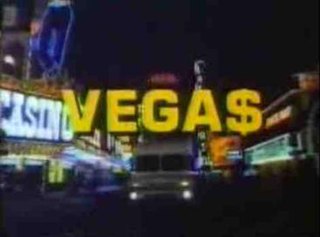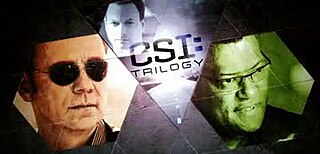Season 1
The first season follows Chicago Police Detective Lieutenant Mike Torello (Dennis Farina) and his pursuit of organized crime from Chicago to Las Vegas, circa 1963–64. At the beginning of the series Torello is the head of the Major Crimes Unit (MCU), a squad of hard-boiled cops that includes Detective Sgt. Danny Krychek (Bill Smitrovich), Det. Walter Clemmons (Paul Butler), Det. Nate Grossman (Steve Ryan) and Det. Joey Indelli (Bill Campbell).

William Stanley Zmitrowicz Jr., known professionally as Bill Smitrovich, is an American actor.
Steve Ryan was an American actor.
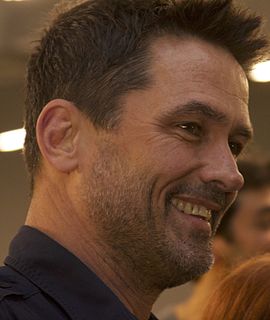
William Oliver Campbell is an American film and television actor. He first gained recognition for his recurring role as Luke Fuller in the TV series Dynasty. Since then, he became known for playing Rick Sammler on Once and Again, Det. Joey Indelli on Crime Story, Jordan Collier on The 4400, and Dr. Jon Fielding on the Tales of the City miniseries. His most notable films include The Rocketeer, Bram Stoker's Dracula and Enough. He portrayed Darren Richmond on the AMC television series The Killing, and played Dr. Alan Farragut in the SyFy series Helix.
At the center of Torello's crosshairs is rising young mobster Ray Luca (Anthony Denison). Initially Luca is an independent thief and killer whose crew, which includes Pauli Taglia (John Santucci) and Frank Holman (Ted Levine), specializes in robberies, burglaries and home invasions. Through his connection to Chicago crime boss Phil Bartoli (Jon Polito), Luca catches the attention of national crime figure Manny Weisbord (Joseph Wiseman), a character inspired by the legendary gangster Meyer Lansky. Luca impresses Weisbord with his desire to leave the streets and move up in the management ranks of organized crime. He assigns one of his men, Max Goldman (Andrew Clay), to be a middleman between himself and Luca.

Frank Theodore Levine is an American actor. He is best known for his roles as Buffalo Bill in the successful film The Silence of the Lambs (1991) and as Leland Stottlemeyer in the television series Monk (2002–2009). His other notable roles were in American Gangster (2007) and Jurassic World: Fallen Kingdom (2018).

Jon Raymond Polito was an American character actor and voice artist. In a film and television career spanning 35 years, he amassed over 220 credits. Notable television roles included Detective Steve Crosetti in the first two seasons of Homicide: Life on the Street and as Phil Bartoli on the first season of Crime Story. He also appeared in several films including The Rocketeer, The Crow and Gangster Squad, as well as his work with the Coen brothers. He appeared in five of their films, including Miller's Crossing, Barton Fink and The Big Lebowski. Polito also portrayed legendary "hungry i" nightclub impresario Enrico Banducci in a large supporting role in Tim Burton's 2014 film Big Eyes starring Amy Adams.

Joseph Wiseman was a Canadian American theatre and film actor, well known for starring as the villain Julius No in the first James Bond film, Dr. No in 1962. Wiseman was also known for his role as Manny Weisbord on the TV series Crime Story, and his career on Broadway. He was once called "the spookiest actor in the American theatre."
Luca tells Weisbord and Bartoli of his plan to take over the Las Vegas bookmaking operation of Noah Ganz (Raymond Serra). He is told to negotiate a deal, but instead instigates the theft of Ganz's gambling book. However, this backfires when Torello gets wind of it and catches Frank Holman in the act, which results in the book falling into the hands of MCU. When a crime war threatens to break out with Ganz's organization, Weisbord and Bartoli order Luca to clean up his mess. In typical fashion Luca solves the problem by massacring Ganz and his thugs.
Torello finally manages to get a solid murder indictment against Luca. Meanwhile, Holman, who escaped custody only to be hunted down again, has made a deal with U.S. federal prosecutor Harry Breitel (Ray Sharkey) to provide information about the mob in exchange for immunity. Among his lies is a made-up story that he paid off Chicago cop Mike Torello. The murders of Ted Kehoe, a childhood friend of Torello with ties to the organization, and his associate Marilyn Stewart convince Breitel to take Luca, Taglia and Bartoli to trial. Torello finds himself being investigated by Breitel and the feds for corruption, based primarily on the testimony of Holman.
At a bar Luca casually asks strait-laced public defender David Abrams (Stephen Lang), whose father once had mob connections, for advice. That advice leads Luca to subpoena Torello to testify for the defense at his trial. Abrams is furious when he discovers the result of his conversation with Luca, who has also tried to convince Abrams to work for him. When Luca learns that Abrams is applying for a job as a Justice Department attorney, he worries that Abrams will now come after him. He orders Abrams killed—but by mistake the car bomb intended for the lawyer kills Abrams's father instead.
Manny Weisbord, in the meantime, is planning to relocate the majority of his organization to Las Vegas, with interest in having a legitimate business that will provide future profits. To this end, he has called upon the services of casino board member Steve Kordo (Jay O. Sanders), who is looking to sell his plans to the highest bidder. Phil Bartoli, along with some of the other Organization members, express disinterest, as they are more concerned with immediate profits than the future. Weisbord sends Ray Luca to Las Vegas with the assignment of taking over the casinos. Luca takes along his dim-witted but brutally violent sidekick Taglia to be his muscle. First, though, he murders Bartoli and all those opposed to the relocation.
With Abrams' help, Torello nullifies Holman's credibility as a witness. The corruption investigation against Torello is dropped and Breitel is taken off of the case. Unfortunately, the case Torello has built against Luca has been destroyed by Breitel's interference. Justice Dept. Assistant Attorney Gen. Patrick Hallahan (Jann Wenner) offers Torello the chance to head up a new federal Organized Crime Strike Force to root out mob activities in Las Vegas. To assist him on the legalities side he will be aided by David Abrams, now a Justice Dept. attorney. The members of his MCU staff, Indelli, Clemons, Krychek, and Grossman, were reassigned to work with him in the Federal Strike Force, based upon, among other things, the fact that they had "the finest arrest/conviction record on the Chicago police force."
In Vegas, Ray Luca sets about a takeover of the casinos in his usual violent, thuggish manner, which includes the murder of the resort-workers union leader and a federal agent planted by the Strike Force. When Frank Holman resurfaces, Luca makes him sorry for bringing him to trial, before hiring him on again as a casino manager. Luca soon becomes so drunk with his own sense of power and invincibility that he alienates those around him. Steve Kordo in particular is worried, as Luca's actions are veering away from the legitimate plans he had and strengthening the Strike Force's case; despite the massive profits from the business, Luca continues to use dishonest methods, simply because he can.
Torello and Abrams finally get enough proof of skimmed profits and rigged games to rescind Luca's gaming license and bar him from entering any and all casinos. Infuriated, he impulsively goes after Goldman, whose wife he had been sleeping with (among other women); he then sends Holman to try and kill Goldman with a car bomb, but Goldman survives. When Luca (still seething from being banned from his own casino) brutally rapes Pauli Taglia's girlfriend, a distraught Taglia turns against his boss and implicates Luca in the union leader's killing to Torello's Strike Force, just as Luca gets the ban on his license lifted. Luca goes on trial for multiple murders, but cleverly orchestrates a mistrial by having Holman tamper with the jury and making sure the judge learns of it. Luca is then released on bail pending a new trial. He apologizes to Pauli, who forgives him out of loyalty, though it is an agonizing decision since it means abandoning the one person who was genuinely decent towards him.
Luca tries to force casino owner Nat Martino to sell out his interest, but Martino's refusal threatens a mob war. Weisbord orders Luca to make peace, but instead the hot-headed Luca murders Martino. Torello and his men had set up the killing as a (somewhat) failed trap, and a gunfight ensues. Luca flees through the streets of Vegas, he and Torello shooting each other several times, before being rescued by Pauli. The wounded Luca wakes up in an isolated desert shack thinking he is safe, only to discover that Taglia has brought them to a restricted government nuclear test area. The season ends with an A-bomb being exploded on site, presumably obliterating Luca and Taglia as they attempt to escape.
Season 2
In the second season, Torello and his cops are shocked when Ray Luca and Pauli Taglia reappear in Las Vegas alive and well... and even more shocked to learn that the U.S. government has made a secret deal with Luca and given him immunity in exchange for his cooperation. Assistant Attorney General Hallahan tells Torello that elements within the government have made a marriage of convenience for their own political agenda. If they continue their pursuit of Luca, they will be operating without official sanction.
Despite Luca's outward appearance of propriety, Torello is convinced the gangster chieftain is anything but. When the Strike Force puts him under surveillance, Luca goes to court to get a restraining order. David Abrams argues that Luca's history of violence justifies the surveillance, but his personal vendetta against Luca for his father's death becomes obvious, and the judge grants the injunction.
Torello and his men aren't the only ones angered by Luca's return to Las Vegas. His abrupt reappearance doesn't sit well with Max Goldman and Steve Kordo. In Luca's absence they now run the mob's Vegas casino interests, and despite Luca's assurances that he has no intention of pushing them out, they feel threatened. Publicly they welcome him back with open arms, but privately they begin to plot against him. Kordo tries to hire a hitman to kill Luca, but is instead warned that the Outfit wants Luca alive because he is too valuable to its operations.
Abrams is so embittered by the failure of the system he believes in that he resigns from the Justice Dept. Though he says he is leaving Las Vegas, Torello discovers he actually intends to kill Luca. Torello and Krychek rush to Luca's house just in time to prevent the killing. Luca thanks Torello, who says he did it for Abrams.
Abrams descends into a haze of alcohol and drugs. Luca finds him strung out on peyote and lies that it was Chicago crime boss Phil Bartoli who ordered the hit that accidentally killed Abrams's father. He tells Abrams he was born to be part of the Outfit and offers him a job as his personal lawyer if he ever decides to clean himself up. Soon after, to the Strike Force's disbelief, Abrams shows up at Luca's door and takes the job.
When Manny Weisbord is stricken by a heart attack and lies near death, Luca flies an internationally known South African surgeon to Las Vegas to secretly perform the first heart transplant—with a heart from a murder victim supplied by Taglia. With Weisbord lying near death, Goldman and Kordo meet to discuss their uncertain future. Concerned Luca will take them both out if the old man dies, Goldman argues for killing Luca preemptively and insists Kordo is the only one who can get close enough to do it.
What they don't know is that Torello's men have them wired and overhear their plot. Torello tells Goldman that Weisbord is now expected to live, which means any hit on Luca is a death wish. Goldman races to Luca's penthouse and throws Kordo out a window as he is about to shoot Luca. Afterward, Torello makes it clear that he now expects Goldman to be his snitch.
The murder of a reporter writing a story about Luca leads the Strike Force to discover the truth about Luca's secret activities. Luca has made a deal with the U.S. military to smuggle weapons out of the country to revolutionary causes the government secretly supports. In exchange, the military turns a blind eye to the fact that Luca is smuggling narcotics into the U.S. from Mexico and Asia.
With this evidence, Hallahan convinces Congress to convene hearings to investigate the unholy alliance between the U.S. government and organized crime. But just as Luca is testifying, the hearings are adjourned because of a national emergency: North Vietnam has attacked a U.S. warship in the Gulf of Tonkin. Hallahan gets a warrant for Luca's arrest anyway, but Luca flees the country with Taglia and Goldman before it can be served, headed for Latin America. Hallahan gives Torello's Strike Force his blessing to pursue Luca onto foreign soil, but warns that outside the U.S. their badges will mean nothing.
In a small banana republic, Luca sets up a new base of operations for his international criminal empire, buying off politicians, military and police with the mob's money. Unable to have Luca extradited, the Strike Force attacks Luca's drug lab in the jungle. Furious at Torello's interference once again, Luca orders the president to have him arrested. The president refuses—and Luca promptly shoots him dead and installs a new president better to his liking. Later, however, the local army executes a coup and their ranking colonel appoints himself leader; while not receptive to Luca's influence, he tolerates him for the money he brings to the republic.
In a confrontation between the Strike Force and the local police, Krychek is captured and thrown into a hellhole of a prison. Torello and the others stage a rescue. Luca decides to rid himself of this thorn in his side once and for all, and orders Torello killed.
In the dead of night Torello meets with his secret source inside Luca's organization: it is David Abrams, whose sellout to Luca has all been an act. Abrams warns Torello about the planned hit and also reveals the location of a major drug shipment. When the Strike Force captures the narcotics, Luca concludes that Abrams is an informant. He offers to trade Abrams to Torello for the shipment. The trade is made—but Torello's men have planted explosives on the drugs, and the shipment is blown up.
An assassin attempts to kill Torello, but Abrams is badly wounded instead. While Clemmons and Indelli race Abrams to a doctor, Torello and the others pursue Luca to an airfield, where he, Taglia and Goldman are about to leave the country. Torello, Krychek and Grossman manage to board the plane as it is taking off. In the ensuing airborne fight, Taglia accidentally shoots the pilot, causing the plane to plummet into the ocean below. The final shot is an explosion of waves caused by the plane's impact, with the fate of the cops and criminals unknown.







